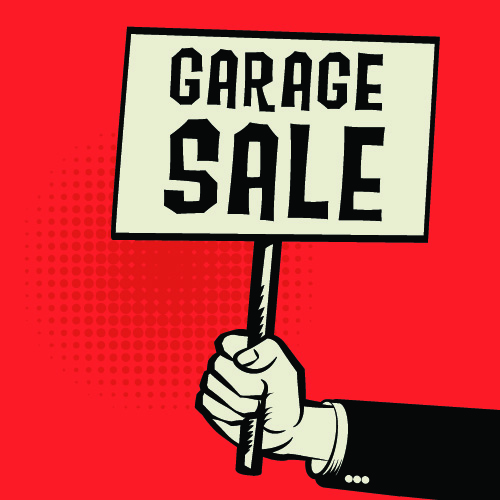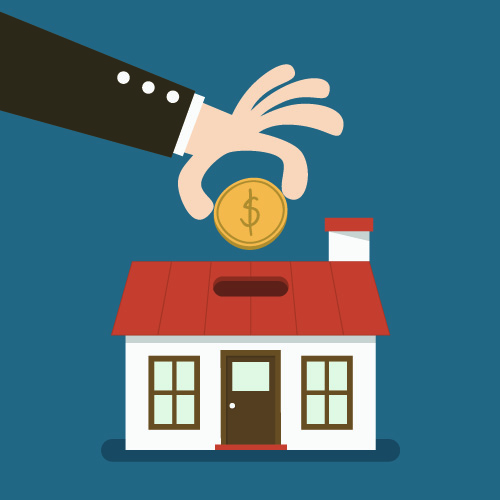Avoid These Homebuyer Turnoffs
 When you’re preparing to put your home on the market, you want to make it as attractive as possible to potential buyers. But what you do – or don’t do – can either get buyers excited or turn them off. Knowing what buyers don’t want is crucial when it’s time to sell your home. Here’s a list of the most common homebuyer turnoffs that you need to avoid.
When you’re preparing to put your home on the market, you want to make it as attractive as possible to potential buyers. But what you do – or don’t do – can either get buyers excited or turn them off. Knowing what buyers don’t want is crucial when it’s time to sell your home. Here’s a list of the most common homebuyer turnoffs that you need to avoid.
Bad smells
Nothing turns off potential homebuyers more than unpleasant odors inside or outside your home. The most common smells that buyers find offensive are pet odors and cigarette smoke. But they may also be turned off by the smell of a damp basement or lingering cooking odors. If bad smells permeate your home, then it’s essential you take steps to wipe them out. Thoroughly clean and open windows to let in some fresh air before any potential buyer views your home.
Dirt and grime
Another big turnoff for potential buyers is walking into a home that’s dirty. This is especially true in the bathroom or kitchen. Nobody wants to buy a grimy home. Before you list your home, you need to clean it from top to bottom until it’s sparkling. If the task seems daunting to you, then hire a professional cleaning service. The added expense is worth it.
No curb appeal
Potential buyers will form their first impressions of your home based on its exterior appearance. After all, it’s the first thing they’ll see when they arrive for their showing. If you want to sell your home for a good price, then you must spruce up your curb appeal. At the very least, clean up the yard and make sure all walkways and the driveway are clear.
Pets
We know you love your dog, but not everyone will share that sentiment. Not only do pet odors turnoff potential buyers, but also the presence of pets at the showing. You must remove your pets from the home before showing it to buyers. Pets are distracting, and you never know which buyers may be allergic to or even afraid of them. You should also remove all pet-related items such as beds, feeding dishes, and litter boxes.
Outrageous or outdated décor
No matter how much you appreciate your personal décor, it can be a major turnoff for a potential buyer. This is particularly true if you have unusual taste or haven’t updated the interior since the 1980s. Remember – you want potential buyers to be able to imagine living in the home. Make is easier for them to do that by neutralizing the home’s interior.
Bad photos
Finally, you should remember that most homebuyers begin their home searches online. The first time they see your home will be in the photos that are posted to listing sites. If you have bad photos or no photos at all, this will give potential buyers a bad impression. If possible, hire a professional photographer to take your listing photos. At the very least, make sure that the photos don’t feature a pile of unwashed laundry or a sink full of dirty dishes.
Compliments of Virtual Results






 We’re nearing the end of the summer season. This means that many homebuyers have already put in an offer on a house and finished the closing process. But if you’re still house hunting, does that mean you’re out of luck? Fortunately, buying a home at the end of the summer can be a great benefit for those who are still looking. Here’s a look at what you should keep in mind when you’re out there house hunting right now.
We’re nearing the end of the summer season. This means that many homebuyers have already put in an offer on a house and finished the closing process. But if you’re still house hunting, does that mean you’re out of luck? Fortunately, buying a home at the end of the summer can be a great benefit for those who are still looking. Here’s a look at what you should keep in mind when you’re out there house hunting right now.
 Buying a home can be a stressful process. But if you and your spouse can’t agree on which house to buy, your stress levels can go through the roof. In a competitive market, you need to act quickly when you find a home you love. So what do you do if you both can’t agree? Check out these valuable tips on how to compromise when you and your spouse disagree about which home to buy.
Buying a home can be a stressful process. But if you and your spouse can’t agree on which house to buy, your stress levels can go through the roof. In a competitive market, you need to act quickly when you find a home you love. So what do you do if you both can’t agree? Check out these valuable tips on how to compromise when you and your spouse disagree about which home to buy. Is that outdated wallpaper getting you down? Whether you’ve just bought a new home or you’re getting ready to sell, removing old wallpaper can seriously refresh an otherwise dated room. While removing old wallpaper can be a time-consuming job, it is actually not that difficult. With a little bit of know-how and some elbow grease, you can easily remove that wallpaper yourself. Here’s what you need to know to get the job done right.
Is that outdated wallpaper getting you down? Whether you’ve just bought a new home or you’re getting ready to sell, removing old wallpaper can seriously refresh an otherwise dated room. While removing old wallpaper can be a time-consuming job, it is actually not that difficult. With a little bit of know-how and some elbow grease, you can easily remove that wallpaper yourself. Here’s what you need to know to get the job done right. Are you one of the millions of Americans who financed the purchase of your home? Taking out a mortgage is a great way to become a homeowner. But if you’re able to pay off that debt quickly, you can free up money for other things such as an early retirement or a dream vacation. While it may seem impossible to pay off your mortgage early, it can be done. Here are some expert tips on how to pay off your home loan faster.
Are you one of the millions of Americans who financed the purchase of your home? Taking out a mortgage is a great way to become a homeowner. But if you’re able to pay off that debt quickly, you can free up money for other things such as an early retirement or a dream vacation. While it may seem impossible to pay off your mortgage early, it can be done. Here are some expert tips on how to pay off your home loan faster.
 Selling a home can be a time of big change. And although you may be excited about your upcoming move, it can also bring with it a little sadness. After all – your home is where you make some of your best memories. If you’re beginning to feel the home selling blues, then here are some of our top tips on how to overcome them.
Selling a home can be a time of big change. And although you may be excited about your upcoming move, it can also bring with it a little sadness. After all – your home is where you make some of your best memories. If you’re beginning to feel the home selling blues, then here are some of our top tips on how to overcome them.

 Catch Our Feed
Catch Our Feed Subscribe via Email
Subscribe via Email Follow Our Tweets
Follow Our Tweets Friend Us On Facebook
Friend Us On Facebook Watch Us On Youtube
Watch Us On Youtube